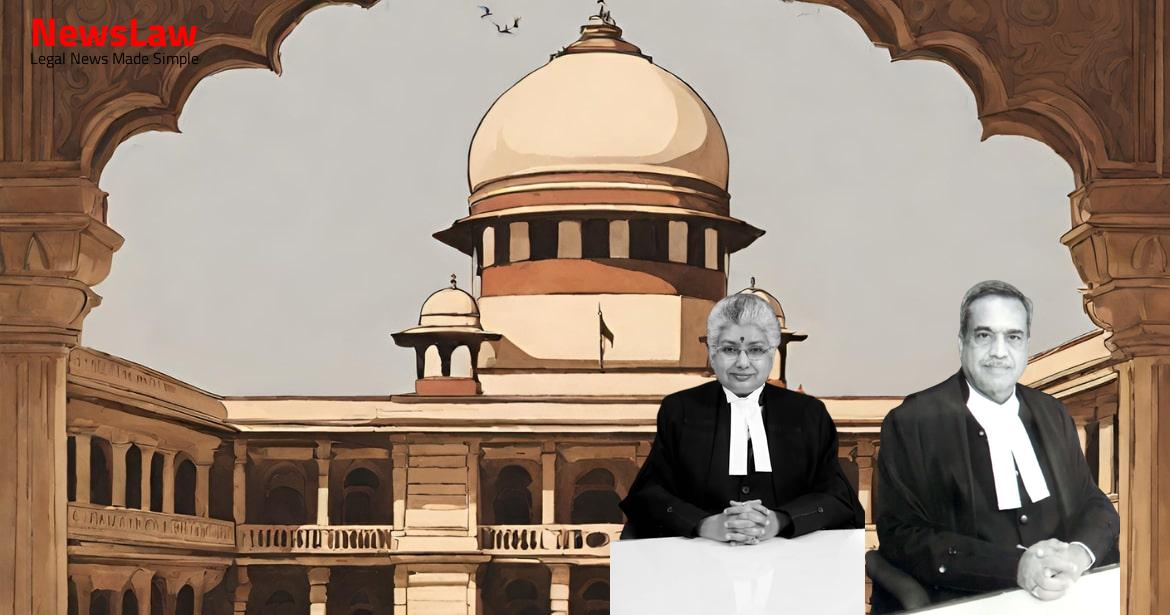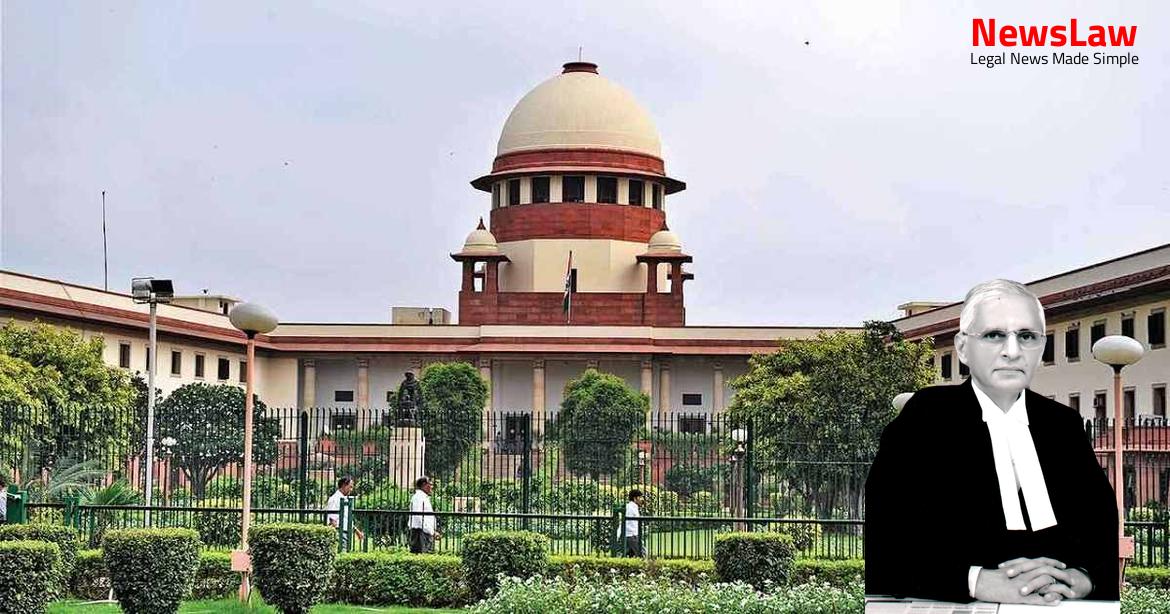The court’s recent decision involves a critical analysis of the pre-deposit requirement for appeals under the SARFAESI Act. This case delves into the interpretation of statutory provisions and the significance of adhering to legal mandates. Discover more about the court’s legal analysis in the context of appealing before the Appellate Tribunal under the SARFAESI Act.
Facts
- Leave granted for the appeals.
- Initial appeals against the order dated 25.11.2019 of the Bombay High Court.
- High Court directed the appellant to avail the statutory remedy of appeal before the DRAT.
Also Read: Deputation Allowance in NDRF Personnel Case
Issue
- The issue to be determined is whether the High Court’s direction regarding pre-deposit for entertaining an appeal before the DRAT under the SARFAESI Act was correct.
- The question pertains to the interpretation of Section 18 of the SARFAESI Act.
- The key focus is on whether pre-deposit is necessary as mandated by the Act for such appeals.
Also Read: Analysis of Limitation in Setting Aside Execution Sale
Arguments
- Appellant’s counsel argued that the High Court’s order goes against the SARFAESI Act and established law.
- Respondent no. 6, the auction purchasers’ counsel, supported the appellant’s case and emphasized the necessity of complying with Section 18 of the SARFAESI Act for filing an appeal.
- The respondent no. 1 had guaranteed and mortgaged property for the loan availed by respondent nos. 4 and 5.
- Respondent no. 6 was the highest bidder at the auction for Rs. 66.52 crores, which is contested by respondent no. 1 for being undervalued and involving collusion.
- The appellant challenged the DRAT order in the High Court, which refused the petition, citing an alternate remedy of appeal to DRAT without a pre-deposit requirement.
- Successful bidders filed review petitions against the direction of no pre-deposit, which the High Court dismissed clarifying that the necessity of a pre-deposit would depend on the nature of the order being challenged.
- Allegations of collusion between bank employees and successful bidders
- Argument that respondent no.1 is not a borrower
- Claim that the property value is significantly higher than the amount it was sold for
- Pointing out that the highest bidder’s offer is below the property value
- Request for appeal without deposit due to low bidding amount compared to property value
Also Read: Analyzing Contempt of Court in Scandalous Allegations Case
Analysis
- The court agrees with the High Court that the matter must be decided by the DRAT.
- The court will not delve into the merits of the case due to the agreement with the High Court.
- Given the decision to be taken, detailed facts of the case will not be outlined.
- Section 18 of the SARFAESI Act outlines the process for appealing to the Appellate Tribunal.
- An aggrieved person can file an appeal with the Appellate Tribunal within thirty days of receiving the order from the Debts Recovery Tribunal.
- The appeal must be accompanied by the prescribed fee.
- The borrower must deposit fifty percent of the debt amount claimed by secured creditors or determined by the Debts Recovery Tribunal, whichever is less, in order for the appeal to be entertained.
- The Appellate Tribunal has the discretion to reduce this deposit amount to not less than twenty-five percent under certain circumstances.
- In the case of Narayan Chandra Ghosh vs. UCO Bank & Ors., the court emphasized the importance of pre-deposit for entertaining appeals by DRAT.
- DRAT could, at most, reduce the deposit amount to 25% but could not waive it entirely without valid reasons.
- Section 18(1) outlines the right of appeal subject to conditions specified in the second proviso, which mandates a pre-deposit of 50% of the debt due or claimed by secured creditors.
- The third proviso allows DRAT to reduce the deposit amount to a minimum of 25%, provided reasons are recorded in writing.
- An appeal under Section 18 of the Act cannot be entertained unless the borrower makes a pre-deposit of fifty per cent of the debt due or determined.
- Guarantors or mortgagors stand on the same footing as a borrower in terms of complying with Section 18 of the SARFAESI Act.
- The High Court cannot give directions contrary to law, similar to the powers vested in the Supreme Court under Article 142 of the Constitution.
Decision
- Time extended for auction purchasers to deposit balance of sale amount till 20.03.2020
- Appeal by respondent no.1 within 30 days of order will not be rejected as time-barred
- Merits of contentions not evaluated, to be decided by DRAT during appeal process
- Pending applications disposed of
Case Title: UNION BANK OF INDIA Vs. RAJAT INFRASTRUCTURE PVT. LTD. (2020 INSC 250)
Case Number: C.A. No.-001902-001902 / 2020



